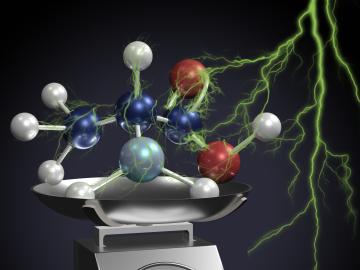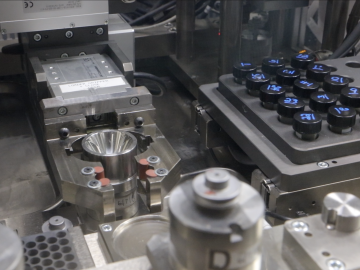
Filter News
Area of Research
News Topics
- (-) Cybersecurity (5)
- (-) Frontier (2)
- (-) Isotopes (1)
- (-) Machine Learning (5)
- (-) Security (2)
- (-) Space Exploration (4)
- 3-D Printing/Advanced Manufacturing (15)
- Advanced Reactors (7)
- Artificial Intelligence (12)
- Big Data (7)
- Bioenergy (9)
- Biomedical (5)
- Biotechnology (1)
- Clean Water (5)
- Composites (2)
- Computer Science (35)
- Energy Storage (8)
- Environment (19)
- Exascale Computing (2)
- Fusion (5)
- Grid (5)
- Materials Science (20)
- Mercury (1)
- Microscopy (5)
- Molten Salt (1)
- Nanotechnology (6)
- Neutron Science (21)
- Nuclear Energy (17)
- Physics (6)
- Polymers (2)
- Quantum Science (10)
- Summit (9)
- Transportation (12)
Media Contacts

Scientists at Oak Ridge National Laboratory studying quantum communications have discovered a more practical way to share secret messages among three parties, which could ultimately lead to better cybersecurity for the electric grid

Researchers at Oak Ridge National Laboratory are taking inspiration from neural networks to create computers that mimic the human brain—a quickly growing field known as neuromorphic computing.

A study led by Oak Ridge National Laboratory explored the interface between the Department of Veterans Affairs’ healthcare data system and the data itself to detect the likelihood of errors and designed an auto-surveillance tool

OAK RIDGE, Tenn., May 7, 2019—The U.S. Department of Energy today announced a contract with Cray Inc. to build the Frontier supercomputer at Oak Ridge National Laboratory, which is anticipated to debut in 2021 as the world’s most powerful computer with a performance of greater than 1.5 exaflops.
OAK RIDGE, Tenn., Feb. 12, 2019—A team of researchers from the Department of Energy’s Oak Ridge and Los Alamos National Laboratories has partnered with EPB, a Chattanooga utility and telecommunications company, to demonstrate the effectiveness of metro-scale quantum key distribution (QKD).

OAK RIDGE, Tenn., Jan. 31, 2019—A new electron microscopy technique that detects the subtle changes in the weight of proteins at the nanoscale—while keeping the sample intact—could open a new pathway for deeper, more comprehensive studies of the basic building blocks of life.

By automating the production of neptunium oxide-aluminum pellets, Oak Ridge National Laboratory scientists have eliminated a key bottleneck when producing plutonium-238 used by NASA to fuel deep space exploration.


